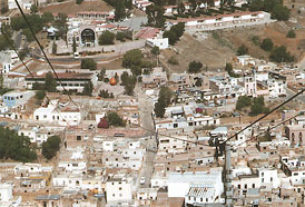Several months ago I reviewed Mexifornia by Victor Davis Hanson. The author of that one described his book as “a reflection upon the strange society that is emerging as the result of a demographic and cultural revolution like no other in our times” – namely, the heavy duty immigration of Mexicans to California and neighboring states. And now, here’s a volume of essays that looks at somewhat the same phenomenon but from a totally different perspective. Rather than taking Hanson’s largely demographic overview, Richard Rodriguez has written from the trenches and on a purely personal level.
He’s the son of Mexican parents but was born in California. He sounds as though he understands Spanish but admits he doesn’t speak it fluently. It seems, too, that because he is very dark skinned and Indian looking he probably is often taken to be Mexican, even in his own home territory. “No one in my family had a face as dark or as Indian as mine.” And, obviously, he’s a keen and astute observer of all things Mexican. Despite that, he’s rather paradoxical in that he probably would certainly be considered a success in straightforward American terms. He has three books to his credit. He’s a contributing editor to several publications, such as the Los Angeles Times, and also has appeared on the MacNeil/Lehrer NewsHour. He mentions also about being an “introducer” for a BBC-TV documentary on the United States and Mexico. Not quite what you expect from an Indian.
The topic of “Indianness” is the subject of the first essay, the one which I found the most interesting. In his examination of Indian culture he makes the observation that: “…in private, in Mexican Spanish, indio is a seller of Chiclets, a sidewalk squatter. Indio means backward or lazy or lower class.” Yet, he adds, Mexico City boasts a magnificent museum of anthropology – generally considered the finest in the world – to honor the Indian mother. Indians are survivors. They are still very much around despite numerous invasions from other races.
“The joke is,” Rodriguez writes, “that Spain arrived with missionary zeal at the shores of contemplation. But Spain had no idea of the absorbent strength of Indian spirituality.”
Indeed, he almost makes the case that long after we Anglos and Latinos and Orientals have passed on there will still be a thriving Indian culture, quietly surviving by adapting itself to whatever orthodoxy prevails far into the future.
The book consists of ten essays, taken from such publications as Harper’s, The American Scholar, the Los Angeles Times Magazine and The New Republic. Not all are concerned with Mexico and Mexicans. “Late Victorians” for example is about the gay life in San Francisco, which Rodriguez seems to know, shall we say, intimately. “In Athens Once,” takes a close and unconventional look at Tijuana, which describes itself as “the most visited city in the world.” And it’s not quite a chamber of commerce type of description of the place either.
I definitely found Rodriguez to be a very provocative writer and also very quotable. For example:
“Mexicans speak of America as ‘the other side,’ saying they are going to el otro lado when they cross for work, legal or illegal. The border is real enough; it is guarded by men with guns. But Mexicans incline to view the border without reverence, referring to the American side as el otro cachete, the other buttock.”
Or: “Lacking any plural sense of ourselves, how shall we describe Americanization, except as loss? The son of Italian immigrant parents is no longer Italian. America is the country where one stops being Italian or Chinese or German.”
Or: “I think now that Mexico has been the happier place for being a country of tragedy. Tragic cultures serve up better food than optimistic cultures; tragic cultures have sweeter children, more opulent funerals. In tragic cultures, one does not bear the solitary burden of optimism. California is such a sad place, really – a state where children run away from parents, a state of pale beer, and young old women, and divorced husbands living alone in condos.”
Or: “Within the porticos of the great churches of Mexico are signs reminding visitors to behave with dignity. The signs are in English.”
Or: on the topic of California place names: “Anglo names suggest the force of pioneer personalities – Irvine, Newman, King City – fading contracts in strongboxes. Or else the names are plain and descriptive of the way the land looked – Pleasant Hill, Riverbank. Most of the Spanish names are holy names.”
And: “Mexico City stands as the last living medieval capital of the world.” And you’ll have to read the book to find out what he’s getting at there.
In my humble O: I really admired this one. I think I’ll put it on the permanent shelf.
Days of Obligation.
An Argument with my Mexican Father
By Richard Rodriguez
A Penguin Book. 1992
Available from Amazon Books: Paperback


